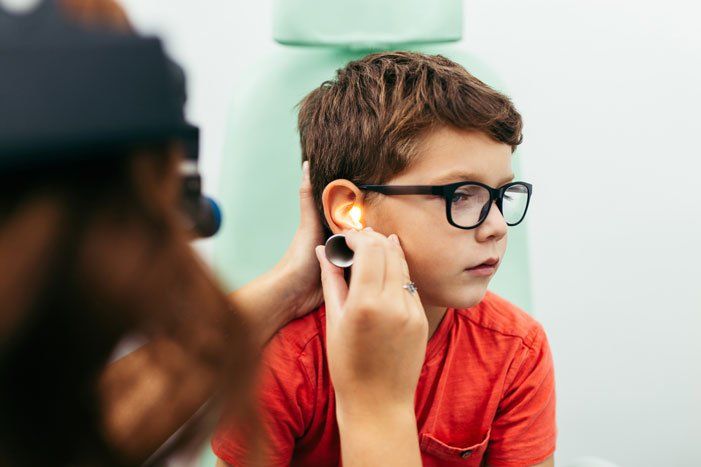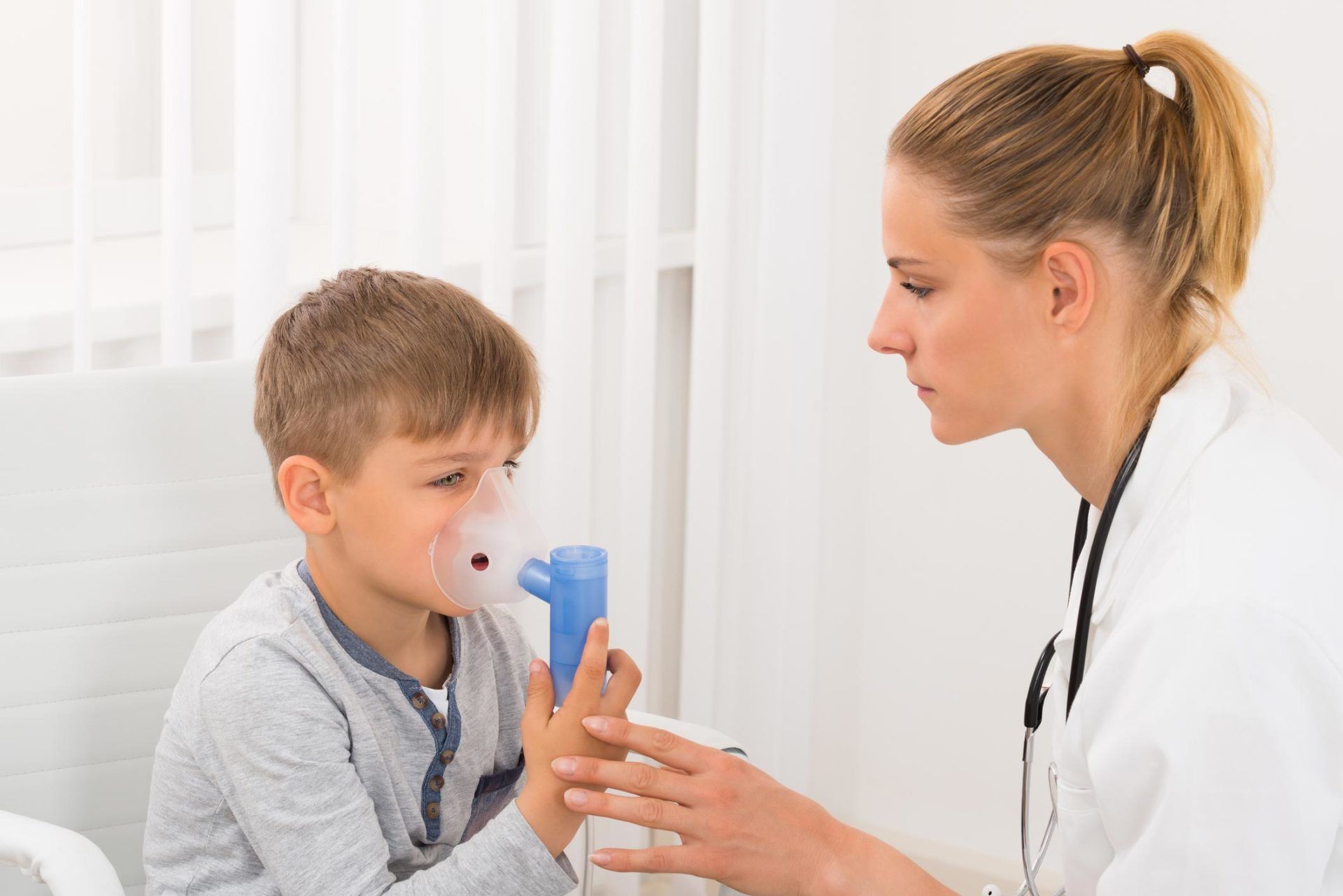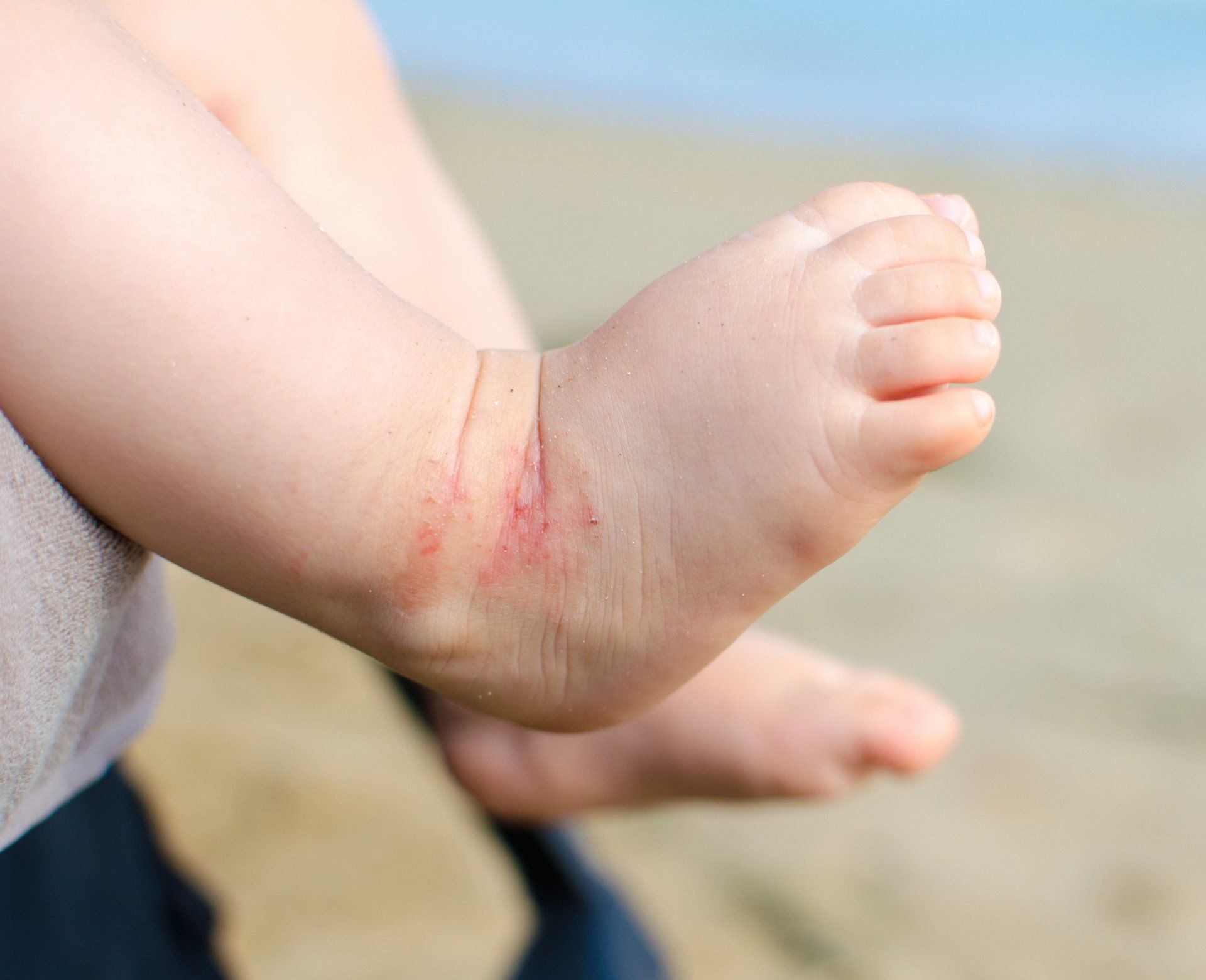Should You Get Your Baby Tested for Allergies
Admin • June 8, 2020
Children with at one parent with allergies have a 30 to 50 percent
chance of having an allergy. If both parents have allergies, this rises to 60 to 80 percent. When your baby is little, you won't know exactly what he or she is allergic to until your little one comes in contact with that substance. By that time, you're witnessing firsthand the severity of your infant's allergies.
Know Before a Serious Reaction Occurs
Not all allergies consist of a runny nose or itchy eyes. For some children, the allergy can trigger anaphylaxis, which is a potentially life-threatening issue. Typically, the onset of anaphylaxis occurs within three to thirty minutes after exposure to an allergen. Generally, the quickness of the response determines the seriousness of the reaction. Quicker responses tend to cause more serious symptoms.
Symptoms of Anaphylaxis
Anaphylaxis can affect your child by causing any of the following symptoms:
- Trouble breathing
- Noisy breathing
- Chest tightness
- Hoarseness
- Swelling of his or her lips, tongue, throat, or face
Other possible symptoms include:
- Chest pain
- Weak pulse
- Fainting
- Rapid pulse
- Low blood pressure
The symptoms of anaphylaxis can also affect your child's skin and digestive tract. For instance, your baby's skin might break out in hives or become pale and itchy. You might notice your child sweating. Your tot might experience abdominal pain, diarrhea, nausea, or vomiting.
Importance of Knowing Ahead
The symptoms of anaphylaxis happen abruptly after exposure. These symptoms are serious, cause discomfort, and can be life-threatening. This issue requires immediate medical attention. If you know in advance, you can learn how to avoid the allergen to prevent the reaction from occurring.
Know What to Avoid
If you know the allergy trigger your child reacts to, you may practice avoidance to prevent any type of reaction from happening. During the appointment, your pediatrician can explain the allergy and explain what your child should avoid.
For instance, let's say your child has a soy allergy. Soy isn't just in soy milk. Various products you purchase may also contain soy. Additionally, cross-contamination is possible, so your pediatrician educates you about evaluating restaurant and manufacturing plant processes in regard to how they prepare the food.
Get the Proper Treatment to Combat a Reaction
No matter what type of allergy your child has or the severity of the allergy, your pediatrician can provide you with the necessary treatment to combat the reaction once it occurs. A prime example is an epinephrine pen.
The active ingredient in this injectable is epinephrine, a substance that triggers a chemical reaction to open your child's lungs and narrow his or her blood vessels. As a result, your child's blood pressure normalizes, and skin allergies stop.
Receive a Preventative Treatment
If your baby is allergic to airborne particles like pollen, you can't always practice avoidance with your little one. You still want him or her to enjoy the fresh air and sunshine, only without the sneezing or runny nose.
A pediatrician can prescribe a medication you can give your son or daughter before or when symptoms start occurring. Antihistamines are one example of a medication you may give your baby to prevent or stop allergy symptoms, so you two can still partake in outdoor fun.
An appointment with a pediatrician for an allergy test can prevent a serious reaction. You can learn how to manage the symptoms or what you should avoid to prevent a reaction.
If you want to prepare for every eventuality regarding your children's health, schedule an appointment for an allergy test for your son or daughter today by contacting Y.H. Parikh & Associates, serving Norcross, GA and the surrounding region, today.
Periodic hearing screenings can detect hearing loss before your child falls behind in school or experiences developmental delays. Learn more here.
Allergies make your child miserable. Here is more information about what causes springtime allergies, their symptoms, and common ways to combat them.
Regular checkups, commonly referred to as well child visits, help ensure the continued health of your child. Read this blog to learn more.
Does your child have severe food allergies? Read this blog for seven necessities pediatricians are likely to recommend for children like this.








